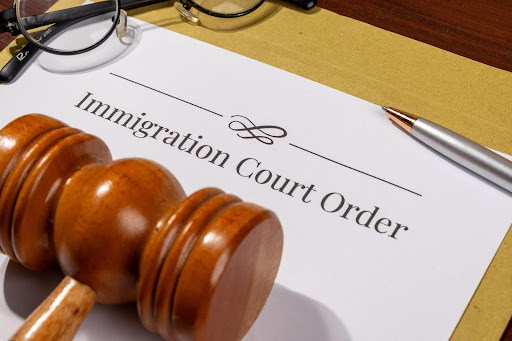The stakes are high in immigration court hearings, and one wrong step can impact all your hard work. Knowing what’s ahead and having the right help from an immigration attorney can make the difference between staying in the U.S. and being forced to leave. Here’s what to expect while you’re in immigration court proceedings.
Understanding Immigration Court: More Than Just Another Courtroom
Immigration courts are specialized courts that operate differently from criminal and civil courts. In a nutshell, immigration courts handle removal proceedings, asylum cases, and other matters under federal jurisdiction. Immigration judges decide on who can stay and who must leave. The atmosphere is formal and every detail matters.
Unlike other courts, you don’t have a guaranteed right to a public defender. The government assigns prosecutors to argue for your removal, while you must find your own legal representation. This imbalance makes expert guidance crucial.
The Frightening Reality of Immigration Court Backlogs
Wait times in immigration court have reached crisis levels. Current data shows the average case takes over 1,400 days to complete. Some courts face even longer delays – Denver averages 933 days, while Phoenix cases wait 882 days. In major cities like New York, new cases may not be heard until the early 2030s.
These delays create:
- Extended anxiety and uncertainty for families
- Difficulty maintaining legal status during long waits
- Challenges in gathering evidence as time passes
The Stark Truth About Legal Representation
Statistics reveal that only 30% of immigrants with pending cases currently have legal representation, down from 65% just a few years ago. The difference in outcomes is dramatic:
- 96% of immigrants assisted by a deportation defense lawyer attend all court hearings
- Only 75% of unrepresented individuals receive in absentia removal orders
- Represented asylum seekers are five times more likely to obtain relief
Expert lawyers, such as those from One Call Legal, can spot procedural errors that could derail your case. They know how to present evidence in a way that allows them to fight for your rights effectively.
When Missing Court Becomes Catastrophic
Missing even one hearing can trigger an in absentia removal order. What this means is that you can be deported without your input or defense. Recent data shows 34% of non-detained immigrants fail to appear at some point during proceedings. The consequences extend far beyond immediate deportation:
Critical impacts include:
- Automatic deportation orders issued in your absence
- 5-year to permanent bars on reentry to the United States
- Loss of eligibility for future immigration benefits
- Immediate risk of arrest and detention by ICE
Immigrants who fail to appear as required only have 180 days to file a Motion to Reopen after missing a hearing. Courts require exceptional circumstances like medical emergencies, improper notice, or attorney abandonment. Simple misunderstandings or transportation problems rarely qualify.
Evidence That Actually Matters
Immigration court focuses on specific types of evidence. Successful cases require documentation that directly supports your legal claims. You need strategic evidence aligned with your specific relief options.
Essential evidence categories:
- Country condition reports from credible sources
- Medical records documenting persecution or trauma
- Expert witness testimony on cultural or political issues
- Government documents proving identity or past persecution
Work with your attorney to identify which evidence strengthens your particular case. Courts expect professional presentation and proper authentication of all documents.
The Hidden Burden of Court Costs
Immigration proceedings create substantial financial pressure beyond attorney fees on applicants. Additional expenses include court transcript costs, document translation fees, expert witness charges, and travel expenses for multiple hearings. Many families exhaust meager savings during the lengthy process.
Make sure to budget for ongoing costs throughout your case. Discuss fee structures with potential attorneys upfront to keep your budget in check.
Beyond Master Calendar: Understanding Court Procedures
Immigration cases typically involve multiple hearing types. Master Calendar Hearings handle administrative matters like scheduling and pleadings. Individual Hearings allow full presentation of your case with witness testimony and evidence. Understanding each hearing’s purpose helps you prepare appropriately.
Courts operate on strict procedural rules. As such, it’s important not to miss deadlines for document submission as this can harm your case. Your attorney should explain each step and ensure timely compliance with all requirements.
When Asylum Claims Face Denial
When you get an asylum denial, this fortunately won’t end the process. Appeals to the Board of Immigration Appeals remain possible within 30 days of the decision.
Appellate success requires identifying specific mistakes in law application or procedure. During the appeal, focus shifts to legal errors made during the original proceedings.
Despite the uncertainty, the immigration court represents a legal way to remain in the land of opportunity. With proper preparation and guidance from an experienced immigration attorney, you are more likely to receive a successful outcome.


